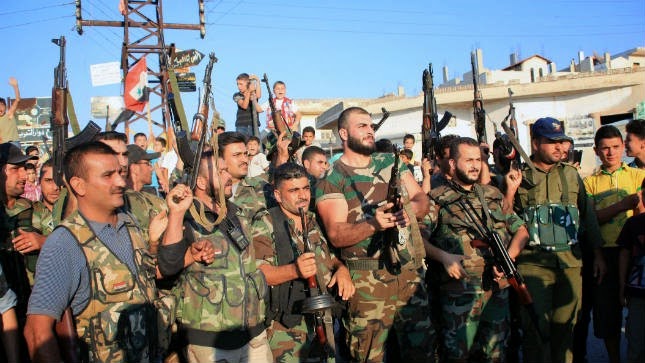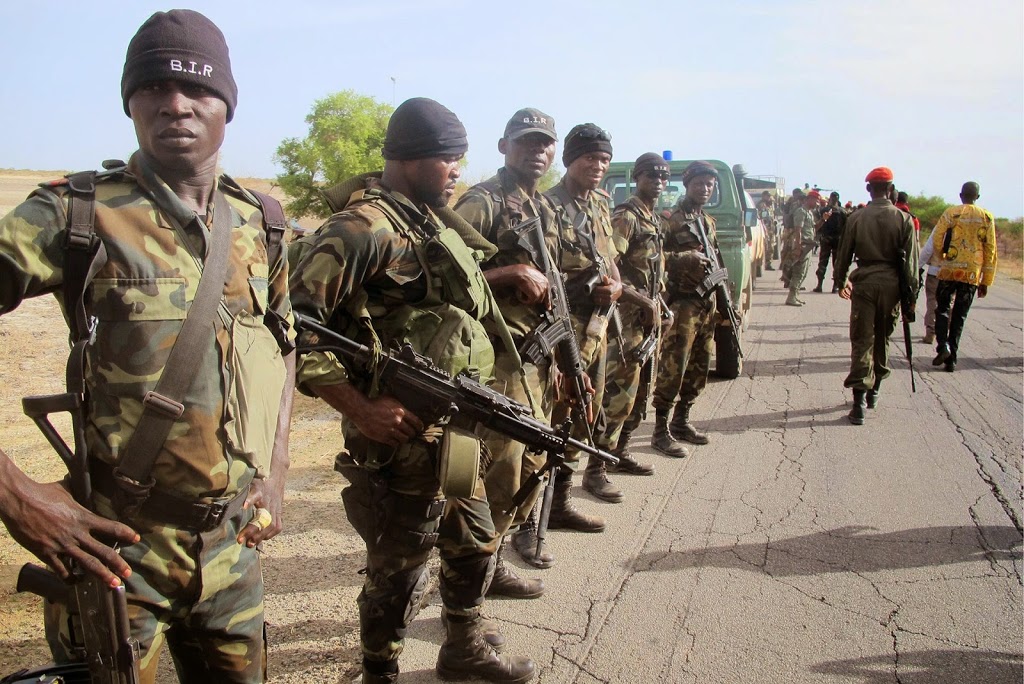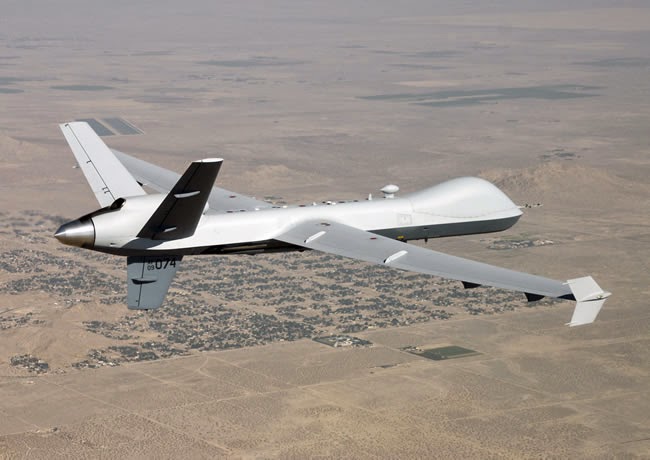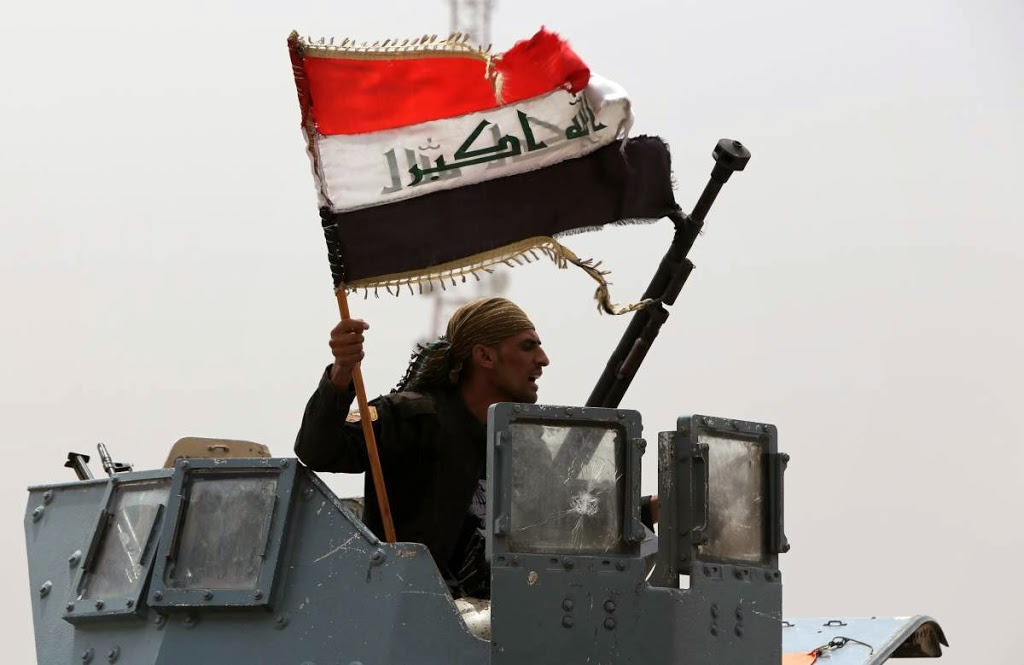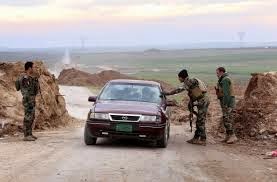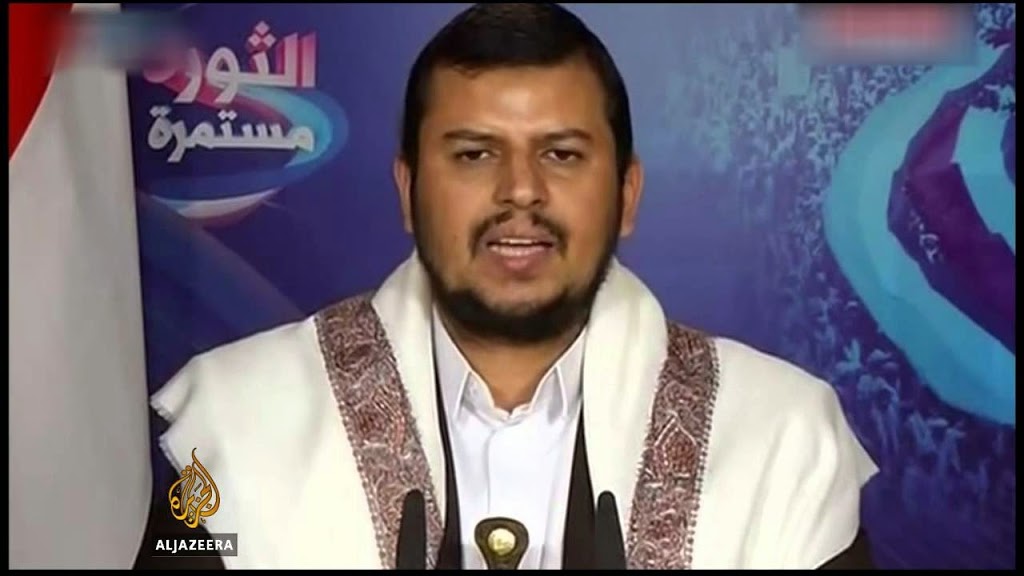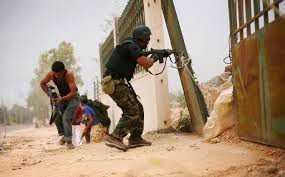Islamic State makes second attempt to destroy Mar Gorgis Church in Mosul, built in the 10th century
Egypt, Algeria, Tunisia, Italy and Russia to meet next week on Libya
Egypt, Algeria and Italy plan to hold a meeting next week in Cairo over the Libya security crisis and the international efforts to combat the terrorism, Egyptian Foreign Ministery spokesperson Badr Abdel Atty told The Cairo Post Tuesday evening.
The meeting was planned by Egyptian Khaled Fawzy and the Algerian Mohamed Buzeit, the intelligence chiefs of both countries.
Algerian Minister for Maghreb and African Affairs Abdelkader Messahel met his Egyptian counterpart Sameh Shoukry Saturday to discuss the crisis, announcing the coming meetings.
“Dealing with the situation in Libya should be through political action and consensus between political parties, in parallel with decisive combat against terrorism,” said Shoukry during the meeting, adding “this requires joint work and concerted efforts from all international community.”
Messahel affirmed there is coordination between both countries that have direct borders with Libya, noting that a meeting for neighboring countries will be held soon.
On Aug. 24, Cairo hosted a conference with Libya’s neighbors (Tunisia, Sudan, Algeria, Chad and Niger) to find a solution for the Libyan security crisis. The outcome of the meeting called for collecting arms and weapons from Libyan militias, reaching a cease-fire agreement between conflicting groups, drafting a new constitution and conducting inclusive dialogue for the recognition of the legitimacy of the new Libyan Parliament.
Although Egypt supports international efforts to reach a political solution for the Libyan crisis and a political agreement between the conflicting parties, it seeks to gain international support for military intervention to battle alleged terrorist groups there.
Following the release of a video showing the execution by beheading of 20 Egyptian Coptic Christians in Libya’s Sirte by a Libyan branch of the Islamic State group in February, Egypt launched six airstrikes on suspected IS bases in Eastern Libya’s Derna and Sirte.
In an interview with France’s Europe 1 radio, President Abdel Fatah al-Sisi called on the United Nations to issue a resolution for an international coalition to intervene in Libya.
Italian Prime Minister Matteo Renzi also called on the United Nations Security Council to send a U.N.-led “mission” to Libya as fast as possible, the Italian News Agency Aki reported in February.
Italy’s envoy to Libya Giuseppe Grimaldi and Italian Ambassador in Cairo Maurizio Massari met Saturday with Egyptian Assistant Foreign Minister for Neighboring Countries’ Affairs Ossama al-Magdoub, discussing the recent developments in Libya and how to deal with them politically, stated the Egyptian State Information Service.
Renzi met Friday with Russian President Vladimir Putin and tackled the Libyan crisis, saying “The role of Russia, for its history and its role in the United Nations Security Council, may be crucial,” AP reported.
Libyan warring parties’ meetings
Since the overthrow of Libyan Leader Muammar Gadhafi in 2011, Libya has experienced ongoing conflict between Islamists from the northern parts of the country and military forces. Due to chaos in the capital Tripoli, the new government and the interim Parliament have made the city of Tobruk their headquarters. Militias and Islamist groups control most of the country outside of Tobruk.
Algeria will host a meeting between the conflicting parts of Libya Wednesday to reach a political settlement. “Algeria has had contacts with all Libyan parties and has received many Libyan players without distinction, except the terrorist groups that are known as such at the United Nations,” Messahel tols channel 3 radio on March 4.
U.N.-backed talks between the Libyan conflicting parties were held in Morocco to reach an agreement Saturday, according to a statement from the Moroccan Ministry of foreign Affairs.
Meanwhile, Tunisian Foreign Minister Habib Essid will visit Algeria Wednesday to discuss the Libya crisis; he previously announced his rejection to any military intervention in Libya, according to a statement from the Tunisian Foreign Ministry Monday.
The 23th round of the Arab Interior Ministers Council meetings kicks off Wednesday in Algeria to discuss the counterterrorism in the region.
African Forces encircle Boko Haram in Nigeria
Military forces from Niger, Nigeria, Chad, and Cameroon have encircled Boko Haram forces and are trying to capture the group’s leader, Abubakar Shekau, alive.
According to Time, residents in Niger and Nigeria say their doors on their homes are shaking from the “booms of fighter-jet missiles and the shutter of artillery fire” as troops draw the noose tighter around Boko Haram fighters.
The attempt to end a six-year expansion of the terror group comes after Boko Haram is thought to “[control] some 20,000 square kilometers in Nigeria’s northeast, forming a rough square bordered by Niger, Chad, and Cameroon.”
Boko Haram fought when convenient and escaped when needed.
And now, with military forces from four African countries encircling the terror group, there is little room to escape.
Through the lenses of these current military efforts, Boko Haram’s March seven-pledge of allegiance to ISIS is seen as a desperate move to encourage other Muslims to join the fight.
BBC News reported that Nigerian Army spokesman Colonel Sami Usman Kukasheka compared Boko Haram leader Shekau to a “drowning man,” adding: “There is no surprise that he is craving support from fellow terrorists across the world.”
Egypt President: We need U.S. support ‘more than ever’ against radical Islam
Egyptian President Abdel Fattah el-Sisi sat down with Fox News’s Bret Baier on Monday and discussed a variety of issues concerning the ongoing conflicts in the Middle East.
The Egyptian leader suggested the creation of an “Arab ready force” to combat the Islamist jihadist groups in the region. Another suggestion of Sisi’s was that Islam itself had to undergo a religious “revolution” against its radical clerics.
Sisi said, through an English translator, that Egypt needs the support of the United States “more than ever” in its fight against Islamic fundamentalism. Furthermore, he hoped to see a “big response from capable countries” in the region, who all too often sit on the sidelines.
Sisi urged the U.S. to reconsider its suspension of arms to his country and said that it sent a “negative indication to the public opinion that the United States is not standing by the Egyptians.”
The Arab force would consist of troops from Saudi Arabia, the UAE, Kuwait, Jordan, and other countries, which would be “capable of defending” their vital national security interests, Sisi explained. However, some Western pundits have warned that empowering an Arab force may not be in the best interests of the United States in the long-run, as the leadership changes in Middle Eastern countries tend to be unpredictable.
The Muslim Brotherhood promotes a dangerous brand of “political Islam,” Sisi said, explaining that the group has turned his people’s “lives into a living hell.”
The Egyptian President’s ascendancy came after his people rose up against the tumultuous reign of Muslim Brotherhood president Mohammed Morsi. Sisi rejected labeling Morsi’s dethroning as a “coup,” explaining that millions of Egyptians flooded the streets demanding he be removed from power.
Separately, U.S. Secretary of State John Kerry is set to meet with the Egyptian President on Thursday, while attending the Egypt Economic Development Conference in Sharm el-Sheikh.
The U.S. State Department said of Secretary Kerry’s upcoming visit with Sisi:
The United States is committed to strengthening its long-term strategic and economic partnership with Egypt. We continue to work with the Egyptian government to help the Egyptian people stabilize and grow the economy, create jobs, educate young people, improve access to health care, and to help realize the aspirations of the Egyptian people for an inclusive, rights- and freedoms-respecting, and peaceful political climate.
Afghanistan: drone strike kills 6 Talibans in Nangarhar
An unmanned aerial vehicle (UAV) which is commonly known as drone has targeted a vehicle of insurgents in eastern Nangarhar province killing six insurgents and damaging their weapons.
Iraqi Army raises flag above Tikrit’s Hospital
The Iraqi troops inflicted hefty losses on the ISIL terrorists in the strategic city of Tikrit and succeeded in retaking the city’s general hospital.
US: key Islamic State’s routes between Iraq, Syria captured
Local forces supported by the U.S.-led coalition airstrikes seized a key terrain from the Daesh terror group in northeast Syria, the U.S. said Tuesday.
The seizure now denies the terror group, also known as ISIL, access to its primary route between Syria and Iraq.
During the two-week operation that ended March 7, anti-Daesh forces seized critical portions of Route 47 in Syria, a key communications and supply line of the terror group leading from Tal Afar, Syria into Mosul, Iraq, according to a statement from the Combined Joint Task Force that oversees the U.S.-led coalition efforts against the militants.
The forces also seized the Jazeera region in Iraq near the northern city of Mosul and liberated 94 villages in the region, while coalition forces conducted supporting air strikes that destroyed multiple Daesh weapons systems, vehicles and fighting positions.
The statement, however, did not specify which local groups took part in the given operations.
Syrian Kurdish militias are currently fighting the terror group in northeastern Syria, while in Iraq, Kurdish peshmerga forces, and the Iraqi army, accompanied by tribal and Shia militias, are fighting Daesh.
The Iraqi army is also conducting an offensive against Daesh in attempts to push the terror group north, and with the help tribal forces and Shia militia, Iraqis have seized control of large areas in Anbar province northeast of Baghdad.
Clashes between Iraqi forces and Daesh have been ongoing since last June when the militants seized Mosul and other territories in Iraq.
Source: Anadolu
Houthi leader accuses Gulf states of backing al-Qaida in Yemen
The head of Yemen’s Houthis accused Gulf Arab states on Tuesday of supplying weapons and funds to Islamist militants, in an effort to create an environment in the southern part of the country where al-Qaida could flourish.
Speaking in a speech broadcast on al-Maseerah television, a media outlet of Ansarullah, the Houthi political wing, Abdel-Malek al-Houthi also accused unnamed parties of recruiting al Qaeda militants from abroad to justify a Western operation to occupy Yemen.
“Is there a just and equitable position for Gulf Arab states towards the Yemeni people?” Abdel-Malek said in the speech.
“Is there any position other than to send support, money and weapons, to the takfiri elements, and to facilitate the atmosphere for al Qaeda in the southern provinces,” he added, using an Arabic expression to describe Sunni Muslim militants.
Yemen, which shares a border with Saudi Arabia, the world’s top oil exporter, has been in turmoil since protests in 2011 forced President Ali Abdullah Saleh to step down. The turmoil worsened in September when the Shi’ite Houthi captured Sanaa, Yemen’s capital, a move that Gulf states condemned as a coup.
Libya: fresh army units sent in as bitter Leithi battle continues
The army said today that some 200 fresh troops had travelled from Beida to Benghazi to join in what appears to be increasingly intense fighting for the Leithi city district.
Combat is also reported to be continuing in Sabri, a district which last month the army was saying was effectively cleared of Ansar Al-Sharia fighters.
Yesterday a sailor and a soldier were killed in exchanges which also saw 11 government troops injured. The bodies of the two men along with the wounded were taken to Jaala hospital. The army has yet to comment on the casualties from today’s fighting.
The Beida formation that sent the two companies to Benghazi, was named by Alwasat as the Mujahid Hussin Al-Jaweifi battalion.
Two missiles, apparently fired at random yesterday killed one civilian and injured five others.
